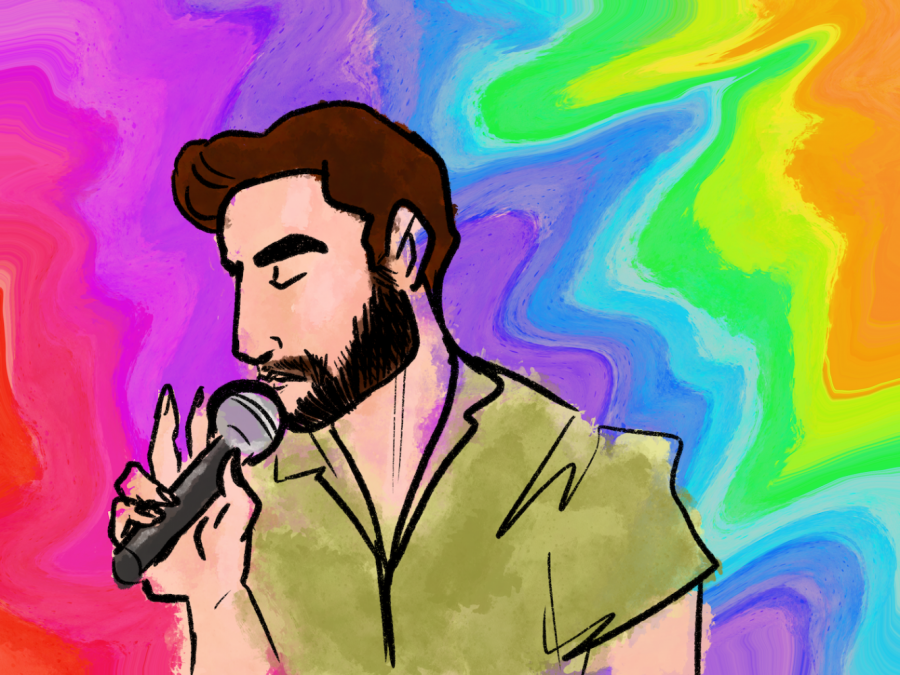Seconds before the clock struck eight, panic filled the family room as my dad struggled to set up the live stream for what would be a revolutionary event: the Saturday Night Passover Seder.
Due to COVID-19 and social distancing, Jewish individuals had no choice but to celebrate Passover, or Pesach, alone this year. Fortunately, the Saturday Night Passover Seder united Jews around the world for an hour filled with tradition and entertainment while raising money for the CDC’s COVID-19 Emergency Response Fund. From Tisch first-year Milo Manheim saying a hearty “Dayenu” and NYU alumna Debra Messing explaining the story of Passover to Idina Menzel singing “The Four Questions” and Andy Cohen’s Afikomen skit, the program not only spread joy in the Jewish community but illustrated the great solidarity and perseverance the population practices in the face of persistent anti-Semitism. Many of the performances were witty and insightful, yet nothing left me feeling quite as inspired as Ben Platt’s rendition of “Somewhere Over the Rainbow” by Harold Arlen and Yip Harburg.
Born into immigrant Jewish families, Arlen’s and Harburg’s mutual heritage inspired them to write the beloved show tune that would later become the heart and soul of “The Wizard of Oz” score. When audiences hear this beautiful melody, they often picture Dorothy in her blue-checkered dress and ruby slippers, imagining the endless possibilities her future may hold. Yet, very few recognize how melancholy the song truly is when situated in a larger historical context.
“The Wizard of Oz” premiered in 1939, a few months after Kristallnacht, or the Night of Broken Glass: when the Nazis destroyed Jewish homes, businesses, schools, synagogues and sent 30,000 Jews to concentration camps, killing almost 100 people that night. Passover remembers the Jews’ suffering while enslaved in Egypt and celebrates the freedom their ancestors possess now. But Arlen and Harburg recognized that their people’s suffering was not in the past, rather something they persistently experienced before and after the Holocaust. Yet in the face of evil, the Jewish composers created “Somewhere Over the Rainbow” to illustrate a future society free of hate and filled with acceptance.
Platt’s singing during the live stream evoked the very bittersweet feeling the song requires. Shot in black in white, Platt’s performance began with a quiet but delightful mix of chest voice and falsetto. Once he finished the first verse, actress Judith Light discussed how the pogroms — riots that massacred the Jewish people — sent European Jews on an exodus, just like their enslaved ancestors in Egypt, to the land full of promise: the United States of America. Soon, the pictures of hopeful Jewish immigrants on ships to America that appeared on the screen were tarnished by the heartbreaking reality of the Jews’ struggle with Nazi Germany. Paralleling Jewish people’s agony and ongoing persecution, Platt’s singing appropriately switched from a wistful to almost pained and mournful tone to complement the sorrowful mood.
Before the end of what seems like an entirely somber performance, Light describes Harburg’s belief that despite the constant anti-Semitism the Jewish people faced, they always found the strength to continue their fight for acceptance — not just for themselves — but for every oppressed individual on the planet. Immediately after she communicated this idea, the song intensified with a lush percussive melody as the music slowed to suspend Platt’s explosive, emotionally charged top note, allowing his voice to flourish while the black and white screen transitioned to color. As the song finished, his singing returned to a hushed, soothing falsetto to match the final picture of optimistic Jewish immigrants looking at the Statue of Liberty.
At the beginning of the 20th century, the Jewish people left their home countries to escape religious persecution and immigrated to the United States due to its promising slogan: “the land of the free.” However, these immigrants would be very disappointed in how the country and its people treat minorities today. Xenophobia is thriving across the nation: Jewish Americans attacked during prayer, the KKK’s persistent violence towards African Americans and individuals blaming Chinese Americans for spreading the coronavirus. When I see these events plastered on newspaper headlines, I cannot help but question if America has the right to boast acceptance when discrimination towards these groups continues to grow. These people’s ancestors immigrated to America believing that the country would protect their future generations, but it is heartbreaking to know that the country’s promise of peace and liberty has yet to be fulfilled.
“Somewhere Over the Rainbow” does not depict a faraway, fictional escape where rainbows shine and people dream, but rather paints a world without hate. While we live in a time plagued with what feels like endless violence and bigotry, the harmonious place Arlen and Harburg referenced is not as far as we may think. Minorities have always found a way to persevere during times of adversity, yet neither they nor anyone will ever find freedom or the majestic heaven with blue skies if their small populations are the only ones fighting. Their cries are heard, but they will never transcend the thunderous roars of stereotypes, accusations and derogatory terms as long as they are fighting alone. So let’s all open our eyes and raise our voices. Raise our voices until our neighbors can hear us. Raise our voices until our community can hear us. Raise our voices until the whole world can hear us because then, and only then, will that somewhere over the rainbow become somewhere closer and real: our everyday lives.
A version of this article appeared in the Monday, April 20, 2020 e-print edition. Email Sasha Cohen at [email protected].
























































































































































